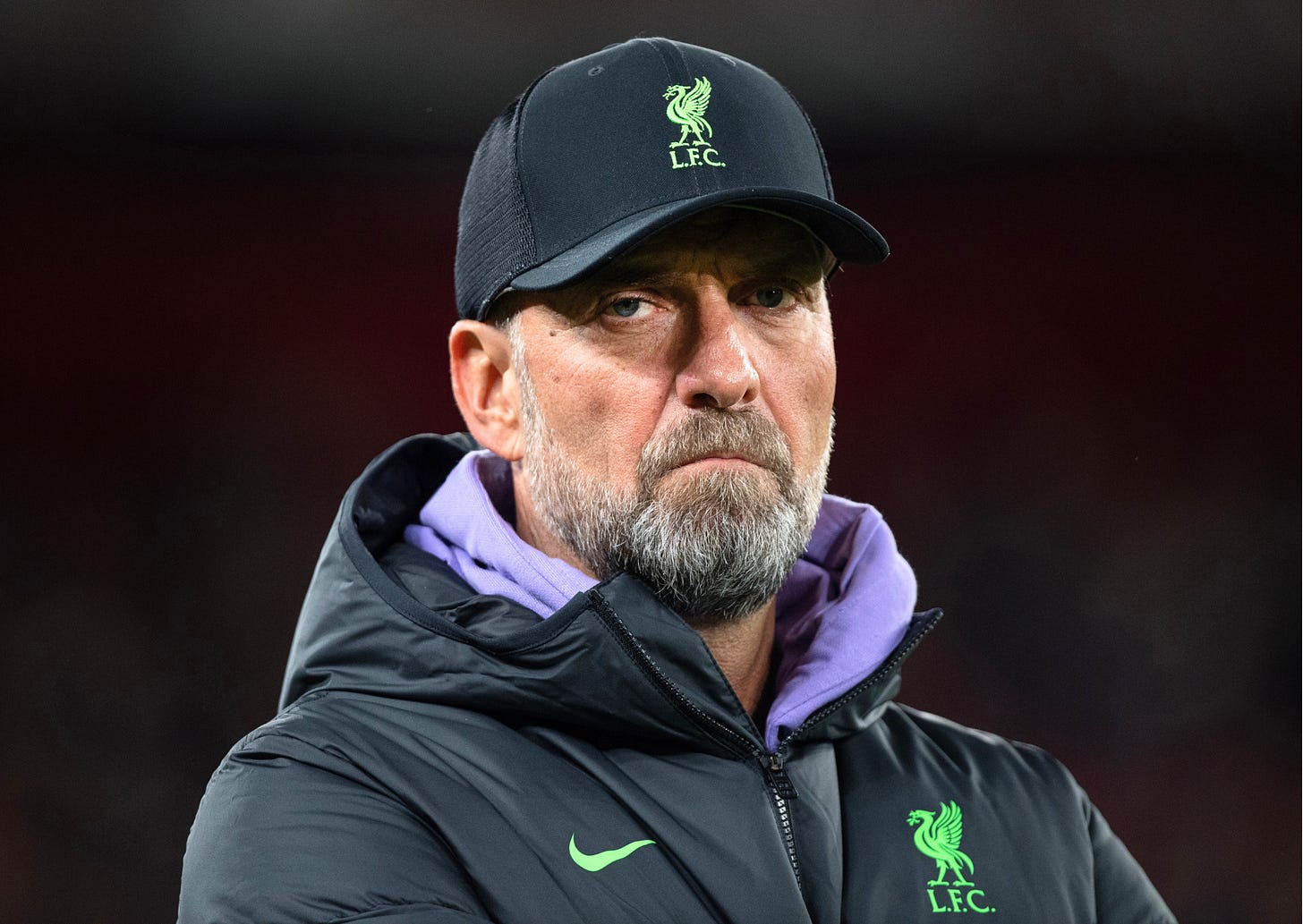Jurgen Klopp officially announced his retirement earlier this summer. The former Borussia Dortmund and Liverpool manager told ESPN he had run out of energy after winning 13 trophies, including the UEFA Champions League, across a 23-year career.
However, we are less than three months removed from that announcement, and Klopp has already changed his mind. Well, kind of. Klopp kept his promise that he wouldn’t return to coach another club in Europe, but he also won’t be sitting on a beach, either.
That’s because Red Bull announced last week that it has hired Jurgen Klopp as its new head of global soccer. In this role, Klopp will oversee all of Red Bull’s soccer clubs globally, including professional teams that they fully or partially own in Germany (RB Leipzig), the United States (New York Red Bulls), Austria (FC Red Bull Salzburg), Brazil (Red Bull Bragantino), Japan (Omiya Ardija), and England (Leeds United).
Klopp will not be involved in the day-to-day operations of any specific club. Instead, the 57-year-old German will provide strategic oversight to each of Red Bull’s club sporting directors, and guide global scouting and coaching development programs.
It’s a more relaxed and strategy-driven role than Klopp has performed in the past, but it perfectly highlights how Red Bull uses sports to create billions in enterprise value.
You’ve probably heard people say, “Red Bull isn’t an energy drink company; it’s a marketing company.” Well, that’s not just some LinkedIn slogan; it’s the truth.
In 1982, toothpaste marketer Dietrich Mateschitz was on a business trip in Thailand when he tried a drink called Krating Deng (KD). The energy drink was primarily consumed by Thailand’s working class for a boost of energy and a hangover cure, but Mateschitz loved it so much that he quickly put together a plan to bring it to Europe.



